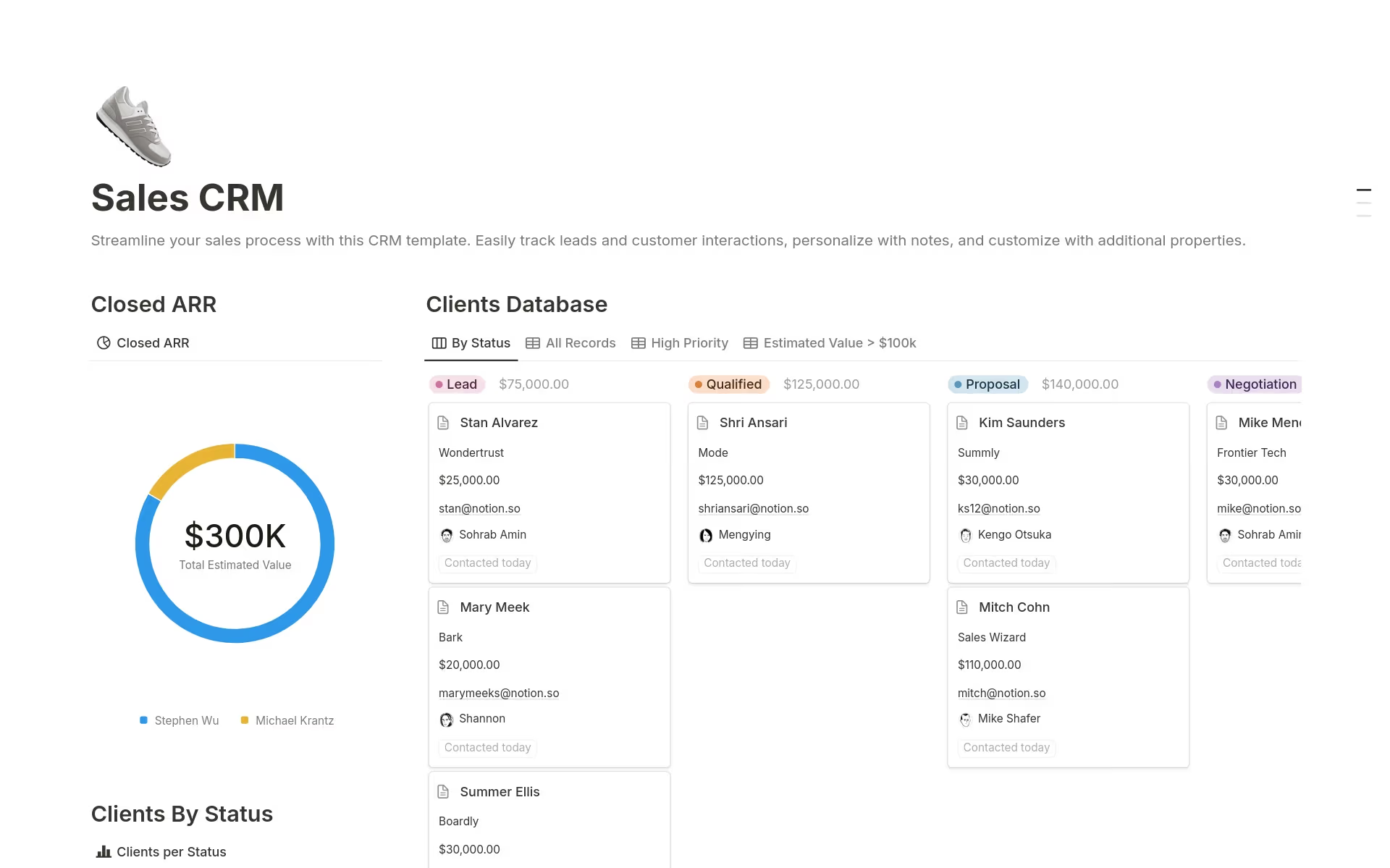We know early-stage startups don't have much time to build key fundraising, team operations, and sales processes out from scratch.
So we put together this startup OS to help you get set up in minutes with pre-built templates. They're based on learnings from hundreds of startups who've nabbed their first hundred customers and raised from the likes of Y Combinator, First Round, Sequoia, and Index.
Notion's startup OS
1Fundraising tracker
Accidentally emailing an investor you've already pitched, or showing up to a meeting unprepared is like the real-life version of that dream where you show up to a class in your underwear. So use this template as one place where you can track every contact and your communication history.
Track different kinds of data in the same database — whether it's average check size, emails, or warm contacts. View contacts by status to see which investors you've won or lost, and how much progress you're making. Then click into each investor's subpage to add meeting notes, links to their websites, or pitch prep.
2Sales CRM
Your sales funnel doesn't have to feel like heavy SaaS software. Notion gives you a clean canvas to define only the fields you need to track leads. And each record is its own Notion page, where you can keep notes on every touchpoint. This template gets you started with the basics.
3Wiki
Transform your team's workspace with Notion's wiki template, designed to neatly organize processes, projects, and specialized knowledge. Tailor a personalized hub that enhances cross-functional collaboration and simplifies information sharing, ensuring every team member can find and utilize essential resources with ease.
4Data room
A data room is a valuable tool for your startup during its fundraising process, giving potential investors a deep insight into your business. This template will get you up and running quickly and give you a central location to store your documents, business details, and important data.
5Simple Roadmap
Use this template to track all of your project work. Organize your projects by epics, sprints, tasks, and bugs. You can view the database different ways to see projects by status, engineer, or product manager.
Save time by using the templates made for each type of task, where you can add more as needed, as well as custom properties to track important information.
6Company home
Every company needs a place where important information is available and easy to find. With this template, you'll be able to consolidate everything your company needs in order to run smoothly. Organize everything from your company's mission and values to your employee directory.
7Investor update
"The best founders write good and frequent updates because it reflects their own processes and attention to metrics and consistent growth," says Aaron Harris, Group Partner at Y Combinator.
Instead of sending a disorganized email to investors, use this Notion template to give them a more comprehensive and digestible look at your progress.
8Pitch deck
Impress investors with an interactive Notion page instead. Anticipate all possible questions they might have about your business, without overwhelming them with information.
Use Notion galleries to display your major use cases, customers, and team. Add more text, images, and details into the gallery subpages so investors can choose to read more about what they're interested in. You can also include a competitor database to show investors a quick overview of how you measure up features-wise.











